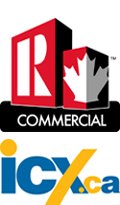Common Mistakes When Selling Commercial Real Estate
Over my next few posts, I'm going to go over what I think are some of the biggest mistakes property owners make when trying to sell their commercial properties. These are common to all types of property, and in fact probably translate well to residential properties as well.
Failing to prepare for the sale well in advance of offering the property for sale.
Once in a great while, the need to sell a property comes up quickly – a new contract that necessitates moving to larger quarters is a good example, but for the most part, you should know many months in advance that your company may need to move, or that you'll need to liquidate an asset to move on to another opportunity. As soon as you have any idea that a move may be necessary in the future, no matter how far into the future that may be, you need to start the process of educating yourself and seeking expert advice. Not familiarizing yourself with the market and with current regulations and procedures will cost you money when it comes time to sell.
Not keeping accurate property records.
Document, document, document! Rule number two in real estate, after location, is documentation. When you need or want to sell someday, the more information you can provide the better. Record maintenance done on the building, major repairs, changes you’ve made since you bought, dates of when the roof was last inspected and/or repaired, etc. Buyers love to see a complete history of the building they are contemplating. Make it easy for the buyer to make his decision and you’ll realize a higher price on closing.
Overestimating price.
This is a big one; and there's an important lesson here for both sellers and agents new to commercial real estate.
You've probably heard that home owners think that they live in a castle, the bank thinks it's a quaint home, the appraiser thinks it's a tear down, and the buyers think it's a shack. Somewhere in the middle of all of that is the truth. This applies for commercial real estate as well as residential - I know this from experience! I've gone into many properties, done my research - looked at comparable sales in the area, analyzed cash flows, evaluated market capitalization rates etc., etc. - and come up with what I hope is a reasonable approximation of what the market will bear in terms of price, only to have the owner act insulted and shocked at the range of values I forecast.
"But I've put my blood, sweat and tears into this place! You can't be serious! Surely you can find a big city buyer that'll be dumb enough to pay us this grossly inflated figure!", say some of them.
I know you have, and I know that you do have something of value. But I don't set the market value, and neither do you! The marketplace does. Putting too high an asking price on the property only harms your position. If it's too high, you won't even attract offers. If you're lucky enough to attract prospects at all, and they're interested in the property, many of them won't make an offer because of the fear that they will 'insult' you with their (often realistic) offer. Bye-bye buyer.
Secondarily, if you do insist on a high list price, and your agent is willing to take on an over-priced listing, both of you lose; in six months, when there have been no offers and likely no showings, you are justifiably upset and you probably think that your REALTOR® hasn't been working hard enough - which usually isn't the case. You've just priced yourself out of the market.
Do your research, find an experienced commercial REALTOR® and *gasp* rely on their experience and counsel - that's why you're paying them!
Failing to prepare for the sale well in advance of offering the property for sale.
Once in a great while, the need to sell a property comes up quickly – a new contract that necessitates moving to larger quarters is a good example, but for the most part, you should know many months in advance that your company may need to move, or that you'll need to liquidate an asset to move on to another opportunity. As soon as you have any idea that a move may be necessary in the future, no matter how far into the future that may be, you need to start the process of educating yourself and seeking expert advice. Not familiarizing yourself with the market and with current regulations and procedures will cost you money when it comes time to sell.
Not keeping accurate property records.
Document, document, document! Rule number two in real estate, after location, is documentation. When you need or want to sell someday, the more information you can provide the better. Record maintenance done on the building, major repairs, changes you’ve made since you bought, dates of when the roof was last inspected and/or repaired, etc. Buyers love to see a complete history of the building they are contemplating. Make it easy for the buyer to make his decision and you’ll realize a higher price on closing.
Overestimating price.
This is a big one; and there's an important lesson here for both sellers and agents new to commercial real estate.
You've probably heard that home owners think that they live in a castle, the bank thinks it's a quaint home, the appraiser thinks it's a tear down, and the buyers think it's a shack. Somewhere in the middle of all of that is the truth. This applies for commercial real estate as well as residential - I know this from experience! I've gone into many properties, done my research - looked at comparable sales in the area, analyzed cash flows, evaluated market capitalization rates etc., etc. - and come up with what I hope is a reasonable approximation of what the market will bear in terms of price, only to have the owner act insulted and shocked at the range of values I forecast.
"But I've put my blood, sweat and tears into this place! You can't be serious! Surely you can find a big city buyer that'll be dumb enough to pay us this grossly inflated figure!", say some of them.
I know you have, and I know that you do have something of value. But I don't set the market value, and neither do you! The marketplace does. Putting too high an asking price on the property only harms your position. If it's too high, you won't even attract offers. If you're lucky enough to attract prospects at all, and they're interested in the property, many of them won't make an offer because of the fear that they will 'insult' you with their (often realistic) offer. Bye-bye buyer.
Secondarily, if you do insist on a high list price, and your agent is willing to take on an over-priced listing, both of you lose; in six months, when there have been no offers and likely no showings, you are justifiably upset and you probably think that your REALTOR® hasn't been working hard enough - which usually isn't the case. You've just priced yourself out of the market.
Do your research, find an experienced commercial REALTOR® and *gasp* rely on their experience and counsel - that's why you're paying them!




0 comments:
Post a Comment